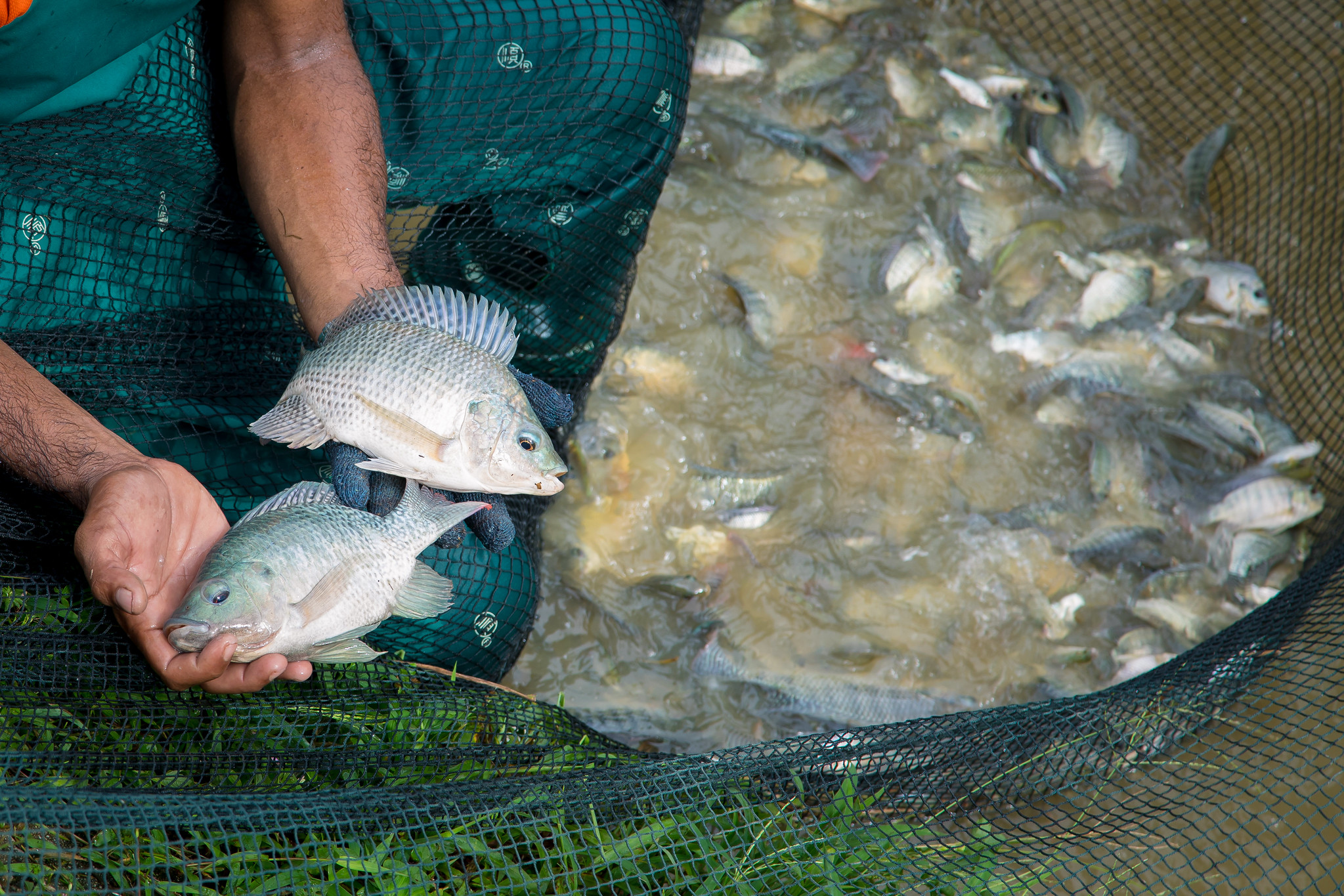Tilapia Genomic Resources
Developing genomic resources in wild and farmed tilapia for the benefit of the aquaculture industry globally and in Africa.
Previous Funders:
Current Funders:
Most of the world's fisheries are overexploited and it seems inevitable that fish-farming will largely replace fishing, just as livestock farming has replaced hunting as the main source of food from land animals. Unfortunately, many farmed fish, such as salmon, are themselves predators and need to be fed on fish meal.
Global tilapia production hit 6 million tonnes for the first time in 2020 and is now a $7.6 billion dollar industry, highlighting the huge growth in the freshwater aquaculture industry. However, that growth is threatened by a number of factors - including disease and arising pathogens, unwanted hybridization with wild fish, and climate change.
Most tilapia production is based on a handful of strains, but there are more than 50 wild species throughout Africa which could harbour valuable genes for growth, disease resistance, temperature & salt tolerance etc. Many tilapia will hybridize readily, so that the natural genetic traits could easily be bred into farmed strains without the need for GM technology. However, this feature also renders them vulnerable to genetic swamping by stocking with alien farmed strains into natural water bodies, a practice now widespread in Africa..
In this project we are establishing the needed genomic resources to enable the study of genomic diversity of wild tilapia populations, including past and ongoing gene flow between populations and across species. These species present different degrees of environmental adaptation for salinity, temperature, oxygen content. Using comparative genomics and system biology approaches we aim to investigate, characterise, and understand the genomic bases associated with those traits of interest. In close collaboration with WorldFish, we are generating similar high quality genomic resources for elite farmed strains of Nile tilapia with the aim of enabling future selective breeding for traits such as pathogen and environmental resilience.

Image above courtesy of WorldFish.
Tilapia are now the third most important freshwater species in aquaculture. Our work in close collaboration with National Fisheries organisations in Uganda, Kenya, and Tanzania aims at identifying the genetics status of existing stocks in water bodies of East Africa countries.
We will disseminate our research and deliver relevant bioinformatics training for local staff and research students through our partners in Uganda, Kenya, and Tanzania. Our work in close collaboration with WorldFish will lead to enhanced genomic resources for elite strains enabling further selective breeding.
Our activities will lead to improved research and monitoring and ultimately to enhancement of the aquaculture industry. We believe that this research will be of great interest to students and the general public in the UK and internationally and we will carry out a variety of dissemination activities through a range of media. Furthermore, the genome sequence information will be publicly available to future researchers, benefiting the wider academic community interested in research themes as diverse as selective breeding, fish health, and evolutionary biology.